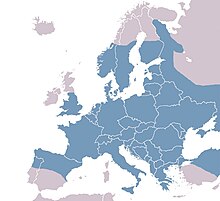Large skipper
| Large skipper | |
|---|---|
 |
|
| Male with androconial dark line . Upperside | |
 |
|
| Female. Upperside | |
| Scientific classification | |
| Kingdom: | Animalia |
| Phylum: | Arthropoda |
| Class: | Insecta |
| Order: | Lepidoptera |
| Family: | Hesperiidae |
| Genus: | Ochlodes |
| Species: | O. sylvanus |
| Binomial name | |
|
Ochlodes sylvanus (Esper, 1777) |
|
 |
|
| European part of range | |
| Synonyms | |
|
List
|
|
The large skipper (Ochlodes sylvanus) is a butterfly of the Hesperiidae family.
It was long known as Ochlodes venatus, but this is a Far Eastern relative. There is still some dispute whether this species should be considered a distinct species or included in O. venatus as a subspecies. Under ICZN rules the specific name, originally proposed as Papilio sylvanus, is invalid as a homonym (of the butterfly now called Anthene sylvanus), but is has been conserved by an ICZN commission decision in 2000.
This species occurs throughout Europe, in the East Palearctic ecozone (northern Asia, China and Japan) and in the Nearctic realm. In the British Isles it occurs in England, Wales, and south western Scotland. It can be found anywhere where wild grasses are allowed to grow tall. Hedgerows, woodland clearings and edges are favourites.
Ochlodes sylvanus has a wingspan of 28–32 mm. Although called "large" this is still a relatively small butterfly and not much larger than either the small or Essex skippers. The body is rather squat. The antennae are hooked at their tips. The upperside of the wings is orange-brown with a brown border and some lighter spots. The underside of the hindwings is greenish-yellow, marked with sparse yellow spots. The male has a broad scented androconial dark line across the top of the forewings. On the hindwings of the females there are brighter square marks. When the wings are opened, the forewings are obliquely folded, masking the hindwings.
...
Wikipedia
